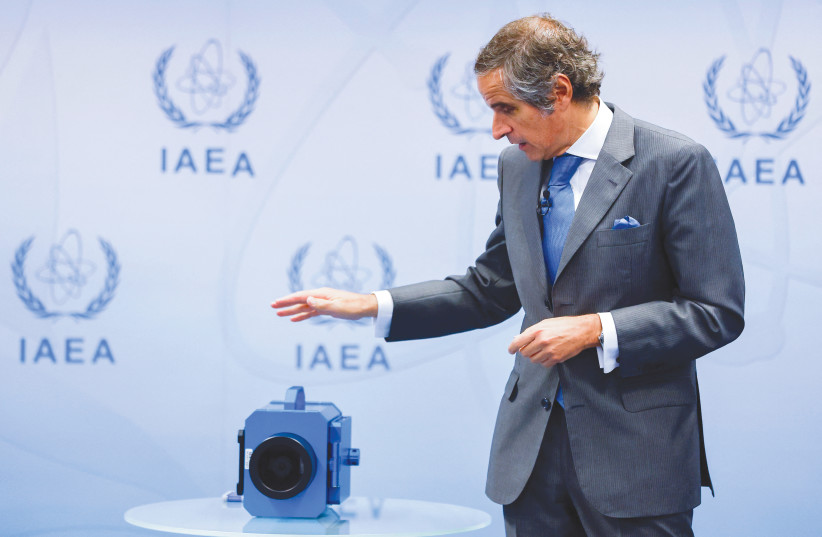A final Iran nuclear deal is on the table and decisions must be made immediately, EU High Commissioner for Foreign Affairs Josep Borrell wrote after months without movement in negotiations.
“After 15 months of intense, constructive negotiations in Vienna and countless interactions with the JCPOA [Iran Deal] participants and the US, I have concluded that the space for additional significant compromises has been exhausted,” Borrell wrote in The Financial Times on Tuesday.
In order for a return to the 2015 agreement to be successfully revived, “decisions need to be taken now,” Borrell said.
The text in question addresses the lifting of US sanctions on Iran and the steps Tehran needs to take to roll back its nuclear program to conform with the Joint Comprehensive Plan of Action, as the deal is known.
For example, the JCPOA only allows Iran to enrich uranium to 3.25% purity, while Iran began enriching to 60% this year; 90% enrichment is needed for a bomb.
In addition, the deal addresses International Atomic Energy Agency monitoring and inspections, which Iran has repeatedly disrupted, most recently shutting off the agency’s cameras at nuclear sites.

Borrell warned that rejecting the deal would “risk a dangerous nuclear crisis, set against the prospect of increased isolation for Iran and its people.”
JCPOA in the US
One reason Borrell states for that urgency is that the JCPOA “remains politically polarizing in Washington as the midterm elections approach.” With regards to Iran, Borrell only said that “there are significant reservations...after the negative experience of recent years,” meaning the American departure from the deal in 2018.
The US, however, agreed to the existing draft of the renewed deal in February, while Iran has sought to add more conditions, such as removing the Islamic Revolutionary Guard Corps from the US State Department list of Foreign Terrorist Organizations, which the US has refused to do.
Iranian Deputy Foreign Minister Ali Bagheri Kani admitted as much, tweeting after Borrell’s op-ed was released that “we, too, have our own ideas, both in substance and form, to conclude the negotiations, which would be shared.”
US State Department Spokesman Ned Price said that Iran is not showing that it wants to rejoin the JCPOA.
“Every day that they drag their feet or every day that is filled with nothing but silence on their end, it’s an indication to us that they are not serious and that they are not ready to re-enter the JCPOA on a mutual basis,” Price said on Monday.
“We will pursue a mutual return to compliance with the JCPOA for as long as it’s in our national security interest,” he added. “That is not something that we can attach a calendar date to precisely because the United States Government is always taking a close look at the underlying factors. In this case, it’s primarily the advancements that Iran is making with its nuclear program.”
Former prime minister Ehud Barak warned in Time magazine that it is too late to stop Iran’s nuclear program with a precision military attack.
However, he wrote, “the US can still deter Iran from going nuclear by a diplomatic ultimatum to stop the program, backed by a credible threat of a wide scale war. Nothing short of that can assure a result. I hope this is still realistic.
“Otherwise, we face a new and severe change for the worse in the security balance of the Middle East,” Barak added. “I would not for a moment underestimate their capacity to harass Israel and others, disrupt normal life, or their wish to see Israel defeated.”
Omri Nahmias contributed to this report.
